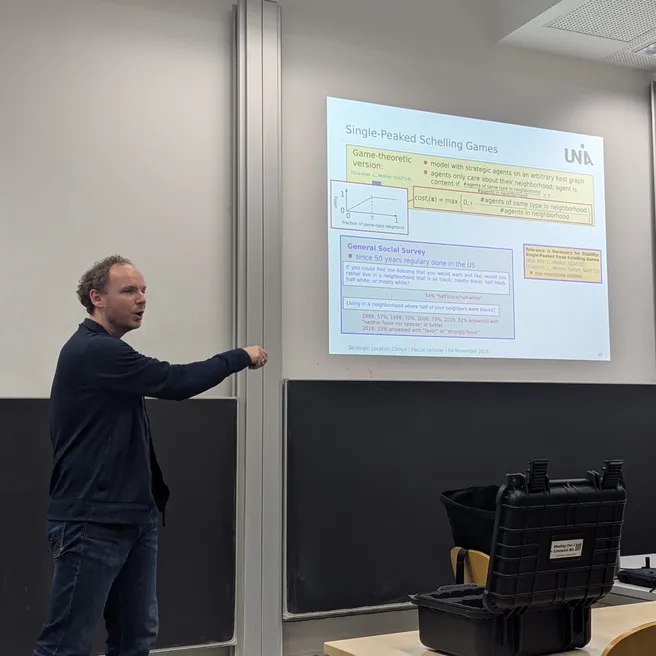Many phenomena like the emergence of homogeneous neighborhoods in cities and the location choices of competing firms in a spatial market are the outcome of the complex interaction of selfish agents. These settings can be modeled as strategic games and methods from Algorithmic Game Theory can be employed to rigorously analyze them.
In this talk I will present case studies for game-theoretic models for residential segregation and for competitive facility location. In particular, I will focus on the study of game dynamics via potential function analysis, on efficient algorithms for finding best strategies, and on measuring the quality of equilibrium outcomes via the Price of Anarchy. With the use of these concepts, I will present insights into why residential patterns in cities stabilize over time and how competing firms can find suitable locations in a spatial market.
